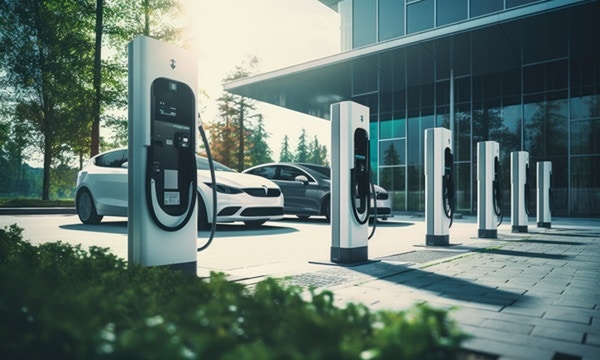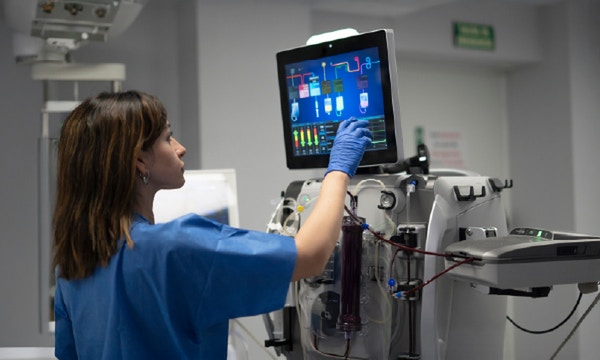In today's dynamic and evolving technology landscape, engineering services are at the forefront, offering a trifecta of competitive advantage, growth potential and social impact.
From manufacturing and energy to transportation, healthcare and agriculture, engineering services are driving innovation, productivity, efficiency and safety, catering to evolving customer and stakeholder expectations.
It serves as the linchpin for sustainable business strategies, guarding against disruption, optimizing costs, fostering loyalty and weaving a positive societal and environmental fabric.
Engineering services are becoming increasingly interdisciplinary, collaborative and integrated, leveraging cutting-edge technologies like AI, IoT, cloud computing, AR/VR/MR and blockchain.
Simultaneously, it has adapted to become more customer-centric and agile while accelerating time to market, transcending traditional industry boundaries.
The digital engineering spend represents a large chunk of the overall ER&D budget and has been consistently growing. It’s estimated to touch $1.6 trillion by 2026, according to a report from Zinnov. Despite the volatile macro-economic environment, enterprises have been shifting focus to digital technology and innovative engineering initiatives to gain competitive advantage fast and stay relevant.
Today, platformization is an imperative that drives cost-efficiency, innovation, and consumer value. The platform market has exhibited remarkable growth, boasting an impressive ~40% YOY expansion from 2020 to 2022, according to a report from Everest Group, with strong indications that this upward trajectory will persist. Enterprises across diverse industries are rapidly adopting platform solutions, with high-tech and BFSI sectors leading the way, closely followed by professional services, manufacturing, and healthcare, all recognizing the value of platform-based approaches for their businesses.
Platformization offers a range of benefits, including accelerated innovation and trend adoption. Engineering leadership also benefits from enhanced standardization, compliance, reduced turnaround times, and growth potential through disruptive technology. As this transformation progresses, consumers are the ultimate beneficiaries, enjoying personalized experiences, increased satisfaction, and enhanced value. Across the board, platformization's impact is nothing short of transformative.
However, it is not solely about business; it's about addressing the planet's most pressing challenges. The demand for sustainability, net zero emissions and resource scarcity necessitate a holistic approach and collaboration across sectors in designing and implementing solutions that can reduce greenhouse gas emissions, improve energy efficiency, promote a circular economy and enhance social wellbeing.
These developments are reshaping engineering’s role across industries, enabling personalized customer experiences tailored to changing market dynamics. In an evolving world marked by digitalization, globalization and demographic shifts, engineering remains the compass, guiding businesses and ensuring they not only survive but thrive in this ever-changing landscape.
The evolution of engineering services
Engineering services have transformed from being a cost arbitrage to an innovation ecosystem, seeking to create value for customers, stakeholders and society. As this transformation unfolds, it blurs the line between core and non-core functions, as innovation can emerge from any part of the value chain.
Another key aspect of engineering evolution is the shift from a self-reliant to an ecosystem-oriented approach. Engineering ecosystems consist of various players, such as customers, suppliers, competitors, partners and regulators. These ecosystems enable businesses to access diverse capabilities, resources, and markets, while sharing risks and costs. They also foster innovation by facilitating knowledge exchange, learning and co-creation.
In today’s dynamic market situation, distributed R&D is a key aspect of ensuring resilience. Organizations disperse their research and development activities across multiple locations, teams, and domains, gaining regional insights while reducing risks. It helps businesses navigate uncertainty, volatility, and disruption while leveraging the opportunities of globalization, digitalization, and diversification. Distributed R&D enables businesses to adapt to changing conditions, and to build an ecosystem of partners to fuel innovation and broaden their capabilities.
This engineering services transformation centers on innovation, collaboration and adaptability, fostering sustainable growth in a dynamic world.
The path forward with generative AI
In the evolving realm of engineering services, a convergence of key trends charts its future.
Significant strides have been achieved, yet ample opportunities for innovation and expansion remain, as the market has not fully opened up.
Enterprises across industries are constantly in the quest of leveraging advanced underlying digital technologies to drive future use-cases. Applied AI, distributed infrastructure, metaverse, digital thread and quantum computing are just a few such technologies that present ample opportunities for innovation and growth.
Generative AI (GenAI), though still at a nascent stage, has the potential to revolutionize the future of AI and change the way businesses operate. It holds promise for addressing the prominent challenge of talent deficit and can bridge the skills gap, bolstering productivity. It amplifies human creativity and intelligence, assisting in designing, prototyping, testing and optimizing solutions faster and more efficiently.
In industries such as automotive, aerospace, healthcare and telecommunications, GenAI is a game-changer. It pioneers the design of novel materials with precise physical properties, accelerating product development cycles. In software development, it goes beyond conventional code snippets, generating complete functions. Moreover, GenAI enhances healthcare by improving clinical understanding, diagnosis and treatment, ensuring better patient outcomes and operational efficiency.
Telecoms can gain actionable insights, enhance customer experiences, optimize operations through automated chatbots and personalized offers and drive revenue growth. In the banking sector, it refines marketing strategies, supports virtual assistants and enhances machine learning processes for KYC compliance.
GenAI is not just a technological marvel; it's a strategic driver of business value. It accelerates product development, reduces costs, boosts productivity and efficiently manages risks, ultimately reshaping industries, fostering innovation and pushing progress forward in ways that complement human capabilities.
The landscape today is fiercely competitive, and organizations find themselves in a perpetual race to innovate, differentiate and disrupt traditional norms. Beyond technical proficiency, being current and competitive requires a tireless dedication to pushing the envelope, adopting innovative technology and promoting a culture of continuous improvement. Success in this dynamic environment requires not only meeting existing industry standards but also creating new benchmarks, setting the stage for long-term sustainability and growth. To thrive amid such challenges, engineering firms must foster a culture that thrives on innovation, agility and adaptability.
Engineering services are on the cusp of a transformative era, and we, as the architects of the future, must leave a constructive imprint on society, shaping a world that is resilient, sustainable and prosperous.

 Listen to article
Listen to article



